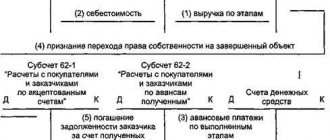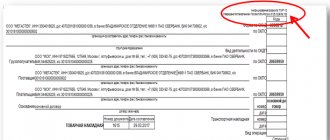Apartment owners, along with the right to manage and use real estate, receive a number of responsibilities, one of which is the obligation to pay utility bills on time and in full. However, there are situations when residents cannot calmly agree among themselves how to distribute utility bills, because if the living space is divided into shares, then each co-owner bears this responsibility. In order to solve this problem, you can separate the personal account and payment in an apartment with shared ownership. Let's figure out how to do this.
What is a personal account
A personal account is a document that is generated for a separate real estate object and contains the following information:
- technical characteristics of residential property;
- information about owners and registered residents;
- information about laid communications and services provided.
Receipts for utility bills are generated based on your personal account.
Until 2005, when the government of the Russian Federation adopted a new Housing Code, the procedure for dividing a personal account (PA) was carried out by allocating a share in kind. That is, from one apartment or house, several separate residential premises with a separate entrance were allocated, in other words, a communal apartment was formed. Naturally, for each object, its own drug was formed.
Due to the changes, the authorized bodies are very reluctant to allocate a share in kind. Therefore, it has now become possible to generate individual receipts for shared ownership.
Division of personal account between the owner of the premises and the residents registered in it
Disputes related to payment of utilities can arise both between the owners living in the apartment, and between the owner of the premises and the residents registered in it. By law, the account is issued only to the owner. In the case of registration in an apartment together with the owner of other persons, the services provided by the housing and communal services are paid for by them voluntarily.
Accounts for citizens registered in the apartment and who do not have shares in it are not allocated. It is also impossible to divide bills in an apartment that is jointly owned. For such a procedure, you need to allocate shares.
The allocation of shares involves:
- drawing up an agreement on the allocation of shares and signing it at a notary office.
- obtaining a certificate of ownership from Rosreestr and separating accounts in the manner described above.
The current legislation does not prescribe a clear procedure for dividing a personal account. At the request of the owner, the personal account can be divided on the basis of Part 3 of Art. 31 LC RF, clause 5, part 2, art. 153 Housing Code of the Russian Federation, Art. 155 Housing Code of the Russian Federation, Part 1, Art. 158 Housing Code of the Russian Federation.
If one or more apartment owners refuse to pay for utilities, conflict situations may arise and rent arrears may arise. It can be difficult to resolve such issues on your own without knowledge of the law. Therefore, it is better to contact our lawyers who will help resolve the dispute voluntarily or in court. By dividing the personal account, each owner of a share in the apartment will be able to subsequently pay for a certain part of the services provided, which will avoid conflict situations.
Separation of drugs under different forms of ownership
Before considering the possibility of allocating an individual account, it is worth saying that such a procedure can only be done in a privatized apartment. In municipal division is not possible.
Let's consider how the formation of individual drugs occurs in apartments with different types of ownership:
- individual;
- general;
- shared ownership.
If the housing is individually owned, that is, according to documents it belongs to one person, and the remaining residents are simply registered in the living space, then it will not be possible to divide the property. After all, in fact there is only one owner and responsibility for the object lies only with him alone.
In the case where the property is jointly acquired, for example, it was acquired by spouses during marriage, then it is also impossible to separate separate accounts.
First you need to get your share in the apartment allocated, and then request a split of the bill. The allocation of shares can be made either voluntarily through a notary, or in court.
Based on a notarial agreement or a court ruling, Rosreestr makes the appropriate amendments, and now the owners of certain shares can apply for the formation of separate LANs. Thus, we found out that it is possible to divide a personal account in an apartment with shared ownership and not in any other. Another nuance - if there is only one room in the apartment, then the drug section is prohibited.
How to divide a personal account in a non-privatized apartment
In what cases is personal accounts divided for a municipal non-privatized apartment? As a rule, this is necessary in case of divorce between persons living in the same living space (who are tenants, and in the previous housing legislation - tenants) under a social tenancy agreement. In this case, the employers will be former family members.
The need to divide personal accounts is due to the equality of duties and rights of persons living together under a social tenancy agreement, regardless of whether they are members of the same family or have ceased to be so.
Based on the stated principle, former family members of the tenant of the residential premises, who continue to live with him, are given independent responsibility for fulfilling the obligations that arise as a result of the social rental agreement for municipal housing. This agreement necessarily provides for the obligation of residents to promptly pay for the use of residential premises and utilities, as well as for the maintenance of housing and its repairs.
Thus, the division of personal accounts in a municipal apartment can be done both at the request of the tenant and at the similar request of former members of his family.
This requirement must be addressed to all interested parties: the landlord and all persons living with the applicant.
How to divide personal accounts in a municipal apartment 2014? If a mutual agreement is reached between all interested parties on the division of expenses, on the size and form of participation of each party in paying payments for the maintenance of residential premises and utilities, then the division occurs by concluding an agreement that sets out all the obligations of the parties.
Important: such an agreement will not be a sufficient basis for generating separate receipts and dividing debts in the EIRC. Such a basis can only be a court decision.
Organizing a trial may be necessary if the parties were unable to reach an agreement: mutual agreement was not reached or the payment procedure does not suit one of the parties. Therefore, if there is a controversial situation, the issue of division of expenses can only be resolved in court.
Account splitting procedure
As a rule, the need to share responsibilities for paying utility bills arises when people living together cannot distribute responsibility on their own. This can happen due to discord in the family, as a result of divorce, when ex-spouses find themselves in the same territory, or when several strangers inherit the living space.
There are two options to solve the problem. The first is a peaceful settlement of the case through a housing cooperative or management company. The second is through the courts.
Stages of allocating individual utility accounts
Write a statement with reference to documents establishing ownership. The application must indicate in what shares the account is divided. Based on this data, each owner will be charged a certain amount of utility bills. The owner who owns a larger share in the apartment will pay more.
The application must indicate the consent of the remaining owners to split the account and receive separate receipts. Along with the application, you must bring photocopies of title documents to the Housing Office.
It will take at least 1 month to separate the bills, after which you will receive as many receipts as there are owners in the apartment. If, after 1 month, the general payment document arrives again, then you should find out from the Housing Office why the division did not occur.
Section of drugs through the Criminal Code
If the co-owners of the real estate managed to reach an agreement among themselves, then they can resolve the issue peacefully without going to court. To do this, they need to contact the management company servicing the house with a request to divide the assets. They must have the following package of documentation with them:
- application for division - from each co-owner;
- document confirming ownership - a certificate or extract from Rosreestr.
Based on these documents, the management company will decide to create different accounts, and each owner will receive a separate receipt for payment of housing and communal services in accordance with his share.
It is not necessary that the amount of individual payment for utilities should be proportional to the share of living space. Co-owners may agree among themselves on a different distribution. In this case, they need to indicate this in the application to the management company.
Instructions
But still, how to divide a personal account in a privatized apartment? If all apartment owners agree with the need for division, it will be very simple to implement their common will.
- First, you need to determine the form of ownership : joint or shared. This is easy: according to current legislation, joint ownership arises only among spouses whose marriage is registered (Article 256 of the Civil Code). In all other cases , it is generally accepted that the property is in common shared ownership .
- Transfer of housing to shared ownership , since with joint division of personal accounts in a privatized apartment it is impossible. To do this, the owners first need to agree on the size of the shares , if there was no actual division, and then draw up an agreement on the division of the apartment. The finished document must be certified by a notary.
- Registration of shares in Rosreestr , where each co-owner needs to apply with documents received from a notary.
- Registration of separate accounts . After receiving certificates of registration, owners must go to their management company or offices of organizations whose services must be paid directly.
Here everyone will have to write an application for the allocation of a new personal account to pay for utilities according to the size of their share. Usually there are no problems with this, but if the owner of the share receives a refusal, he has the right to appeal it in court.
Procedure
If citizens living in an apartment, by mutual decision, want to carry out the procedure for dividing the payment of utility bills, then they should submit this petition to the management company.
The procedure for dividing payments in a privatized apartment is as follows:
- it is necessary to transfer the housing into shared ownership of each of the persons who wish to make payments for utilities in their own name in the future;
- a special agreement is drawn up. The document must be notarized;
- an application for division of shares is drawn up, which will need to be sent to the management company;
- If the application to the Criminal Code is submitted properly, then you can obtain the document from Rosreestr. This document will describe what share and which of the owners it belongs to. In accordance with the size of the share, each owner will have a personal account;
- each shareholder submits a package of documents to the company providing utility services;
- After reviewing the submitted package of documentation, each owner who applies will receive receipts, in accordance with which payment for housing and communal services will be made.
Important! To split a personal account, the consent of other homeowners is required.
In order for the Criminal Code to accept an application for the division of housing and communal services payments, the petition must be drawn up correctly. The structure of the statement is as follows:
- name of the management company;
- information about the applicant: full name;
- address of the location of privatized housing;
- account number;
- passport details;
- contact details.
If citizens submit an application to the Criminal Code for the division of utility bills, then the employees of this organization will not necessarily accept it and satisfy the citizens’ request. There are some grounds according to which the Criminal Code may refuse to provide this service. Reasons for refusal:
- the entrance to the living space is less than 70 cm;
- a window from any room opens onto a closed courtyard and its area is less than 5 meters;
- the width of the living room is less than 2 meters;
- the distance from the window to another building is less than 3 meters.
Let's sum it up
To allocate separate accounts in a privatized apartment, the consent of all shareholders will be required. The application and photocopies of title documents are accepted by the organization providing utility services. The application indicates the requirement to allocate a personal account for an individual owner or for all at once, taking into account the shares owned by them.
The following documents will be required:
- An application stating the size, number of shares and the consent of all owners to divide the personal account.
- Apartment contract.
- Certificates of shared ownership of the apartment. If the shares are not allocated, then this can be done through a notary or, in case of disagreement of the remaining residents, through a judicial authority.










